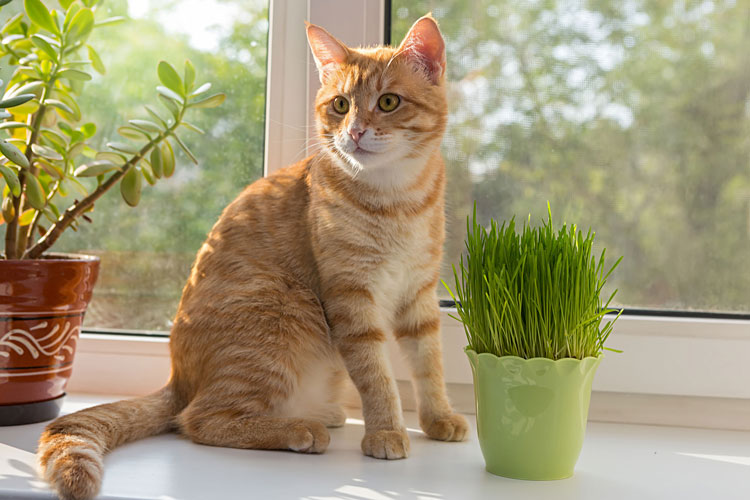By Tiffany L. Mitchener, DVM

Why Do Outdoor Cats Live Such Short Lives?
The outside world can be a big, scary place for a feline. Outdoor cats are small, difficult to see, and often not “traffic savvy.” An eight-pound creature is no match for a motor vehicle. They can be prey for predators, especially coyote, which are increasing their territory into our suburban neighborhoods.
Because many cats are proficient hunters, they can be poisoned by mistake as people put out bait for pest problems. Also, many cats are inherently territorial and will defend their home base. Animal fights often result in bite abscesses which can be life-threatening if not treated by a veterinarian.
Why do indoor cats live longer?
Cats with a white hair coat, especially those with white ears and pink noses, are at increased risk of skin cancer from sun exposure outdoors; it is easier to limit sun bathing in a cat that routinely stays inside.
Additionally, owners of an indoor cat can monitor their pet more carefully. The cat’s food and water intake can be followed closely.
By cleaning out the litter box regularly, the owners have knowledge of their pet’s eliminations.
Indoor cat pet owners can control their cat’s diet exclusively, thereby maintaining a healthy weight or feeding a special diet. Any unusual signs, like vomiting or diarrhea or decreased energy, are often noticed earlier by the owners of an indoor cat. Thus, veterinary treatment can be pursued more quickly.
How Can You Be a Better Neighbor by Keeping Your Cat Indoors?
Owners of indoor cats promote public health and save our bird population. Indoor only cats do not eliminate in neighbors’ gardens or children’s playgrounds, which can spread disease. Indoor only cats do not hunt and kill our bird population. It is estimated that 15% of bird deaths are caused by domesticated cats. The bird population is vital to a healthy ecosystem.
Birds pollinate plants, decrease our rodent pests, and keep our insect population in check. A single outdoor, roaming cat is estimated to kill 4-18 birds annually. With 84 million housecats in the US, the number of birds killed each year at the hands — or paws — of our pets can reach into the billions. This number could be significantly decreased if more domestic cats were kept inside.
How do I Keep My Indoor Cat Happy?
Okay, you have decided that you are going to keep your cat indoors to improve her longevity and quality of life. Environmental enrichment is essential.
- Make sure your cat has a safe zone in the home. Every cat should have her own safe place that she can retreat to if she needs a little peace and quiet. This is especially vital if there are other pets or children in the household. Cardboard boxes with holes cut in the side, a raised cat perch, or a cat carrier are all examples of safe zones. Teach children not to disturb the pet when she is on her “home base.”
- Provide essential resources. It is important to provide key resources in the house. These resources include water and food bowls, litter boxes, and scratching posts. There should be multiple resources available in separate rooms in multi-cat households so that no single cat can dominate and guard these essential items.
- Give your cat the opportunity to play. It is important to keep the home environment fun and new. Rotate solo toys, like crinkly balls or fuzzy mice, throughout the house. Set up a paper bag on its side in a new location every day. Play with fishing-pole type toys with your cat. Set up puzzle feeders to make your cat “hunt” for her food.
- Provide human-feline social interaction that is always positive and predictable. It is important to let your cat take the lead on any interaction. Never force contact. There is a wide variability of how much human touch each individual cat craves. Some cats enjoy lying on an owner’s lap for hours; other cats prefer occasional touch only, like a single rub of their human’s leg at mealtime. Remember to let your cat initiate and control the contact.
Keeping your cat indoors is better for our neighborhoods and better for her health. Keeping her interested and engaged in her indoor environment can ensure a happy relationship between you and your cat for years to come.